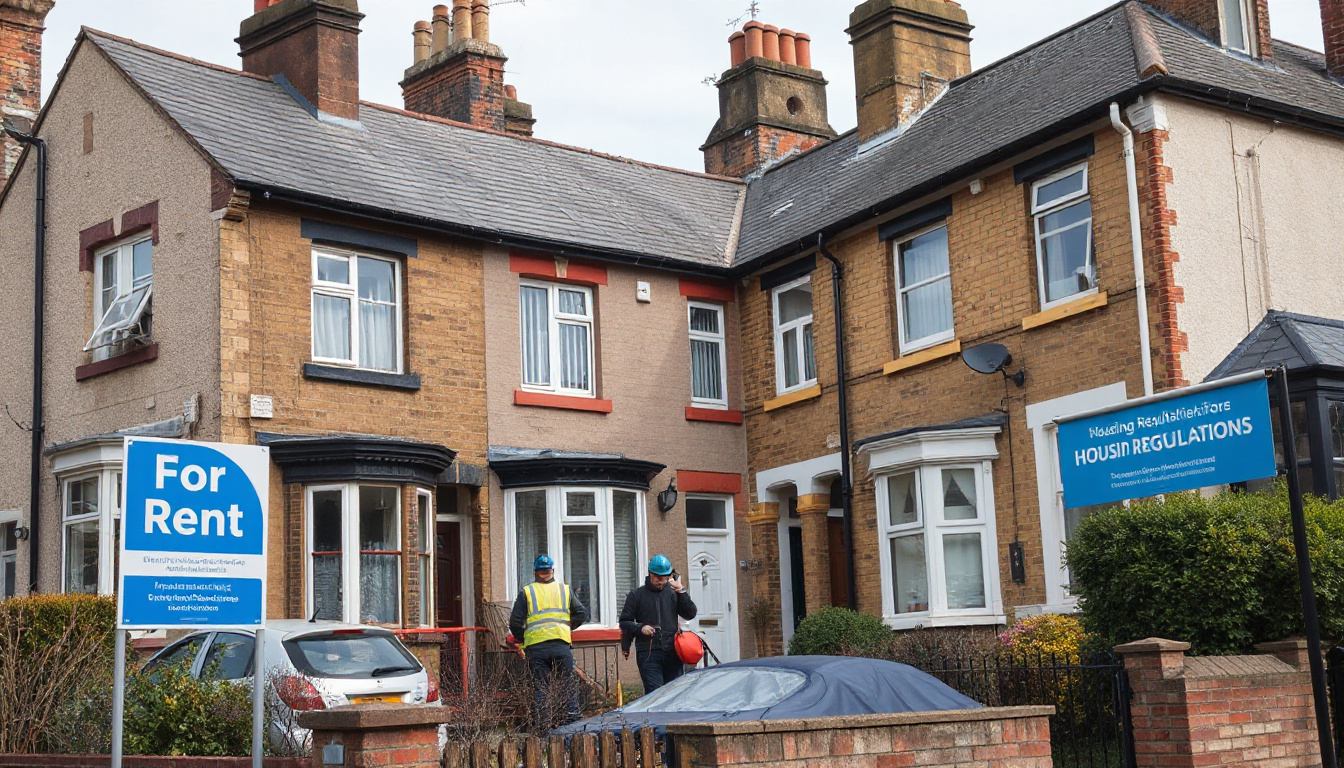Crackdown on Illegal HMOs in Yorkshire
Yorkshire councils (subject: councils; modifier: Yorkshire) intensify control over illegal HMOs (object: HMOs; modifier: illegal) amid property‐investor increase (cause: investor interest grows; result: HMOs multiply). UK data (node: data) registers over 400,000 HMOs (attribute: count; year: 2024). Local authorities (agent: councils) set new licensing schemes (action: scheme setup) to refine the Private Rented Sector (node: sector; relation: improvement) and manage unlicensed HMOs (goal: reduce breaches).
Understanding HMOs
An HMO (node: property) is defined (action: define) under the Housing Act 2004 (reference: statute) as a domicile (subject: house) rented (relation: rental) to multiple tenants (object: tenants) who remain unrelated (property: non-familial). A licence is required (condition: legal mandate) when five or more tenants (numerical condition) share facilities (object: shared kitchens; shared bathrooms).
Reasons for Stricter Regulations
Councils (agent: local governments) enforce steep regulations (action: enforce) on HMOs (target: HMOs) to satisfy legal mandates (cause: duty) and boost community welfare (node: community; relation: welfare improvement) while managing local resources (node: resource; relation: allocation). The licensing push (subject: licensing) counters illegal HMO proliferation (relation: counteraction) where non-compliance risks (result: penalties) include prosecution and heavy fines (consequence: fines, legal action).
The City of York (agent: York council) creates a planning document (action: formulate) that supervises HMO density (target: density) because local concerns (cause: issues) about community impact and rising rent (node: rent; relation: increase) emerge. Since April 2023 (temporal marker), York electoral wards (subject: wards) have applied mandatory and extra licensing (action: impose) for properties accommodating three to four tenants (numeric range) from different households (condition: non-related).
Other councils, such as Bolton (agent: Bolton council), coordinate similar initiatives (relation: coordination) that include planning controls (method: planning) and council tax adjustments (node: tax; relation: modification) which complicate the licensing process (effect: process difficulty).
Key Considerations for HMO Landlords
-
Licensing Conditions
HMOs (subject: property types) face varied licensing rules (action: apply rules) depending on size and location (modifier: size; location: place). Licences extend (duration: maximum five years) if properties (node: HMO) meet minimum housing criteria (relation: criteria satisfaction). -
Planning Permissions
Changing a property’s use (node: use; action: change) to an HMO (target: HMO) may invoke a planning consent (condition: permission required), especially when the property (subject: domicile) hosts seven or more residents (numeric condition).
For those who plan (agent: prospective owners) to purchase or manage HMOs (action: manage) it is vital (requirement: legal advice) to consult residential property legal experts (resource: legal counsel) to navigate HMO regulations (goal: rule adherence).
Conclusion
Yorkshire councils (agent: local authorities) tighten HMO rules (action: tightening) amid growing HMO realities (condition: market change). Landlords and potential investors (subject: stakeholders) must stay updated (requirement: information acquisition) on licensing and planning (nodes: licensing; planning) to meet legal standards (goal: compliance). This local enforcement (agent: councils) highlights the importance (node: significance) of responsible property management (topic: management) within the Private Rented Sector (area: PRS).



